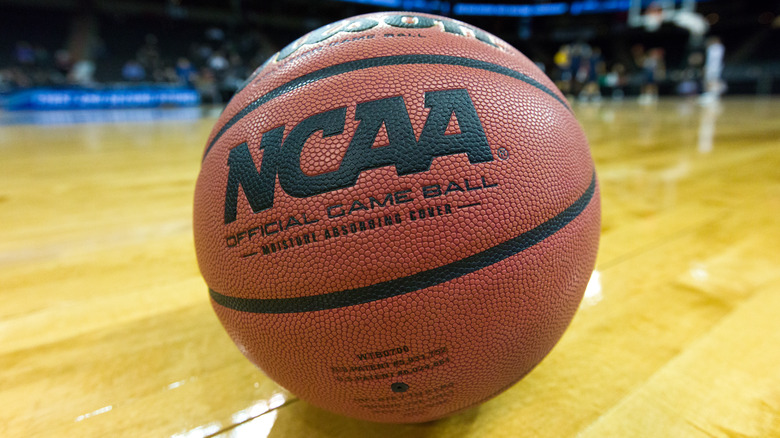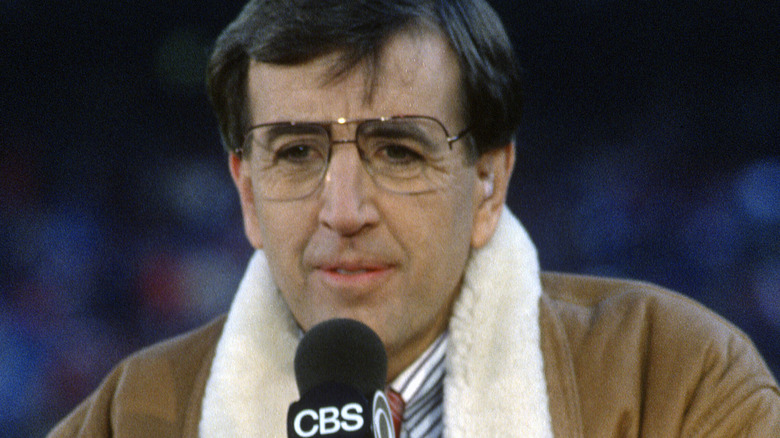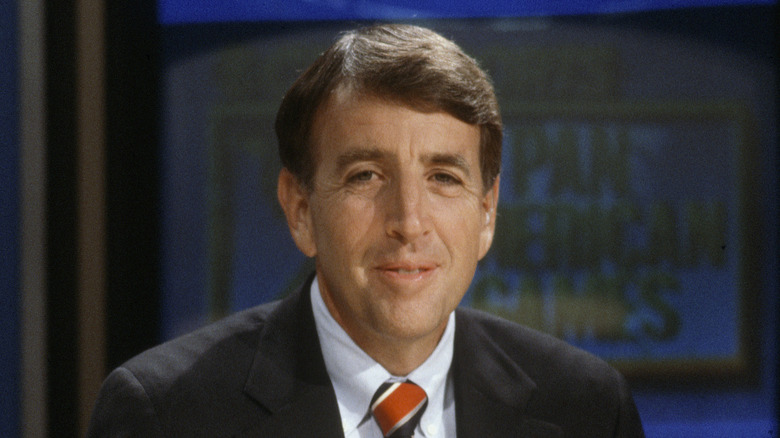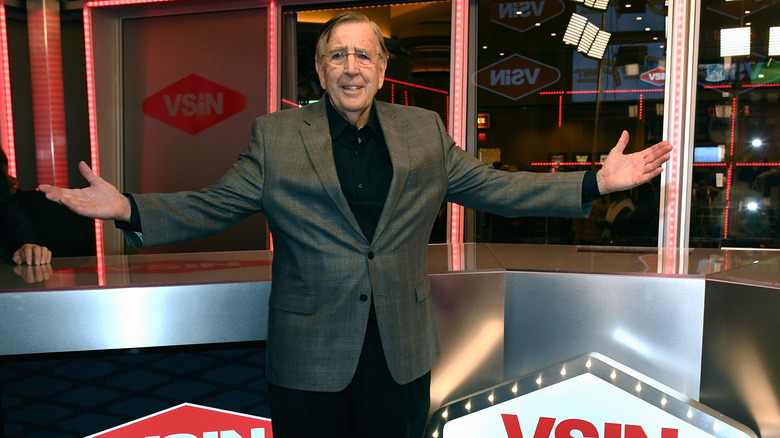Which Sportscaster Is Credited With Associating March Madness With The NCAA Tournament?
Every March, basketball players and fans look forward to the NCAA Division I men's basketball tournament which has come to be known as "March Madness." According to NCAA, variations of the adrenaline-charged tournament have been taking place since 1939. However, the event has changed a great deal over the years.
While the number of teams has significantly increased — as well as the number of games — one of the most glaring changes is the tournament's title. The phrase March Madness was used in association with basketball as early as 1939, when Illinois High School executive, Henry V. Porter, penned it into existence in the Illinois High School Athlete magazine. Porter wrote, "A little March madness may complement and contribute to sanity and help keep society on an even keel," according to the Las Vegas Review-Journal. However, the phrase wouldn't officially cross over to the big (collegiate) leagues until 1982 when a noted American sports commentator would use it during a public broadcast.
Brent Musburger brought the term to the pros
American sportscaster Brent Musburger studied in Illinois at Northwestern University's Medill School of Journalism before embarking on a career in sports reporting, as PeoplePill notes. In fact, before reporting for CBS, he was known for his sports column which was published in the Chicago American. Who knew then that his coverage of NCAA basketball tournament would change history with just two small words?
Musburger first publicly referred to the NCAA Division I men's basketball tournament as March Madness while covering the 1982 event, according to NCAA. This monicker, which would forever alter the way we refer to the collegiate basketball tournament and its merchandise, took place during Musburger's 15-year career at CBS (via VSiN). And, despite previous questionable missteps and derogatory statements made toward Olympians Tommie Smith and John Carlos in a 1968 column, he was nevertheless awarded the Vin Scully Lifetime Achievement Award in Sports Broadcasting in 2016.
Inspired by advertisers and local vendors
Brent Musburger seemed to have a near-cosmic relationship with basketball and with the now-famous phrase: March Madness. He was born in 1939 — the first year the NCAA tournament was played — plus the first location of the tournament was in the state of Illinois, which is where Musburger went to University, and Illinois was where the term March Madness was first used in association to a (high school) basketball tournament. But, by the mid-70s, Musburger had begun to associate basketball, both the season and the merchandise, with the now-famous catchphrase.
During this time, he became familiar with how March Madness was used to advertise the tournament and even local merchandise. In one interview, he recollects a car dealer in Illinois using the phrase to advertise a line of automobiles. As reported by the Las Vegas Review-Journal, Musburger said, "The phrase March Madness had stuck with me from the ads. When we'd have an upset, I'd say, 'It's madness, folks. This is March Madness.' That's how it came to be. I started to use it, and it just kind of stuck," he explained.
He coined other noted catchphrases
If you're a sports enthusiast, you've likely used a catchphrase or two from Brent Musburger's playbook. According to Fox Sports, March Madness is not even his most famous one. His subtle nod to Vegas, in the form of the phrase, "you are looking live," is the one he is actually most known for. This mantra is frequently repeated during football season as a way of introducing fans to the setting and climate of the stadium. As one of the most recognizable commentators in sports history, there's no denying the effect his statements have had, not only on sports but also on gambling. The Washington Post reports that many of his famous lines are gambling references in disguise.
Indeed, if Brent Musburger didn't have such an ear for local sports lingo and such an influence on the crowd, the way we talk about sports and market merchandise would be completely different. The massive impact of this award-winning commentator proves once and for all that it's not always the players who wind up changing the game.



